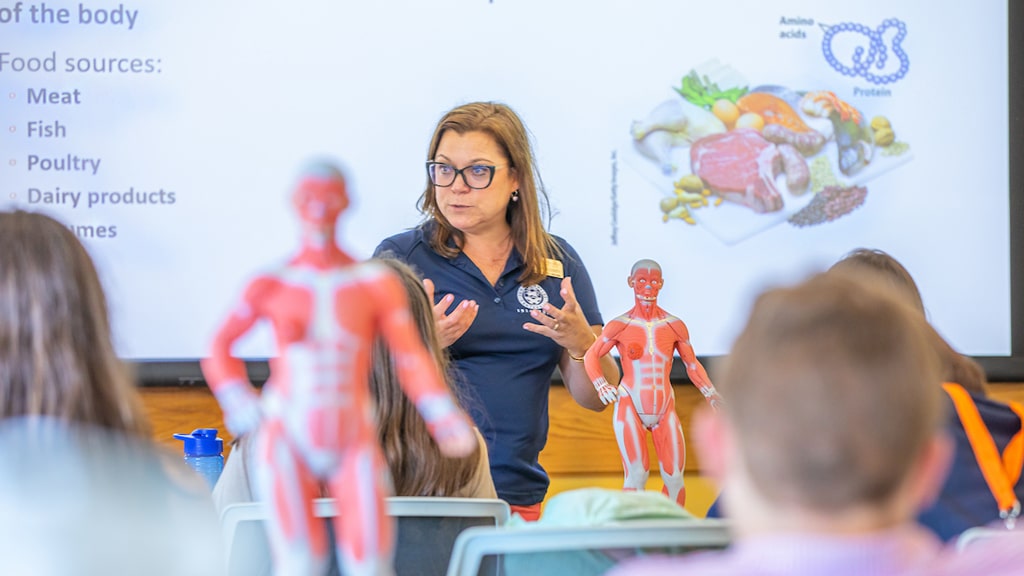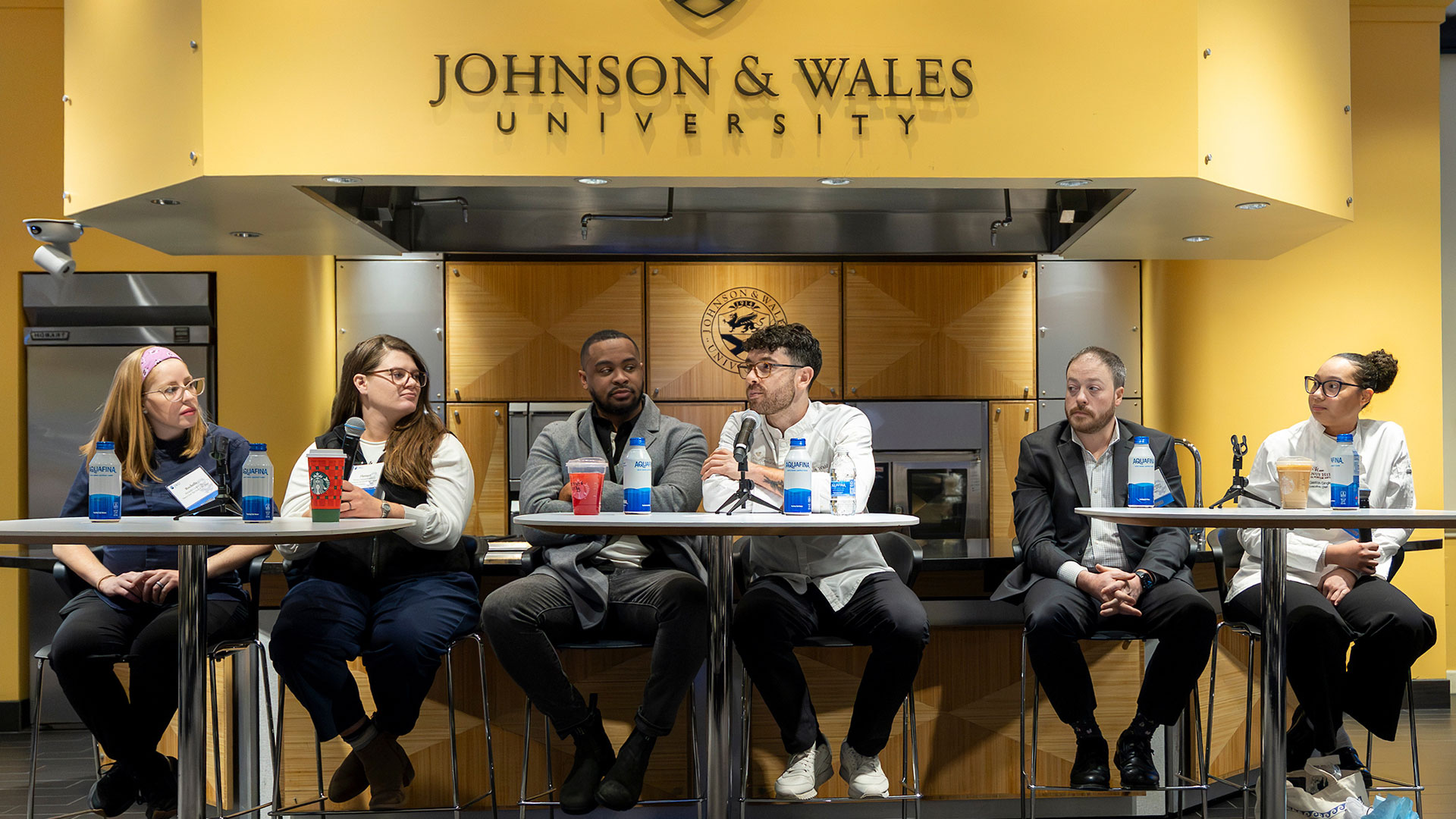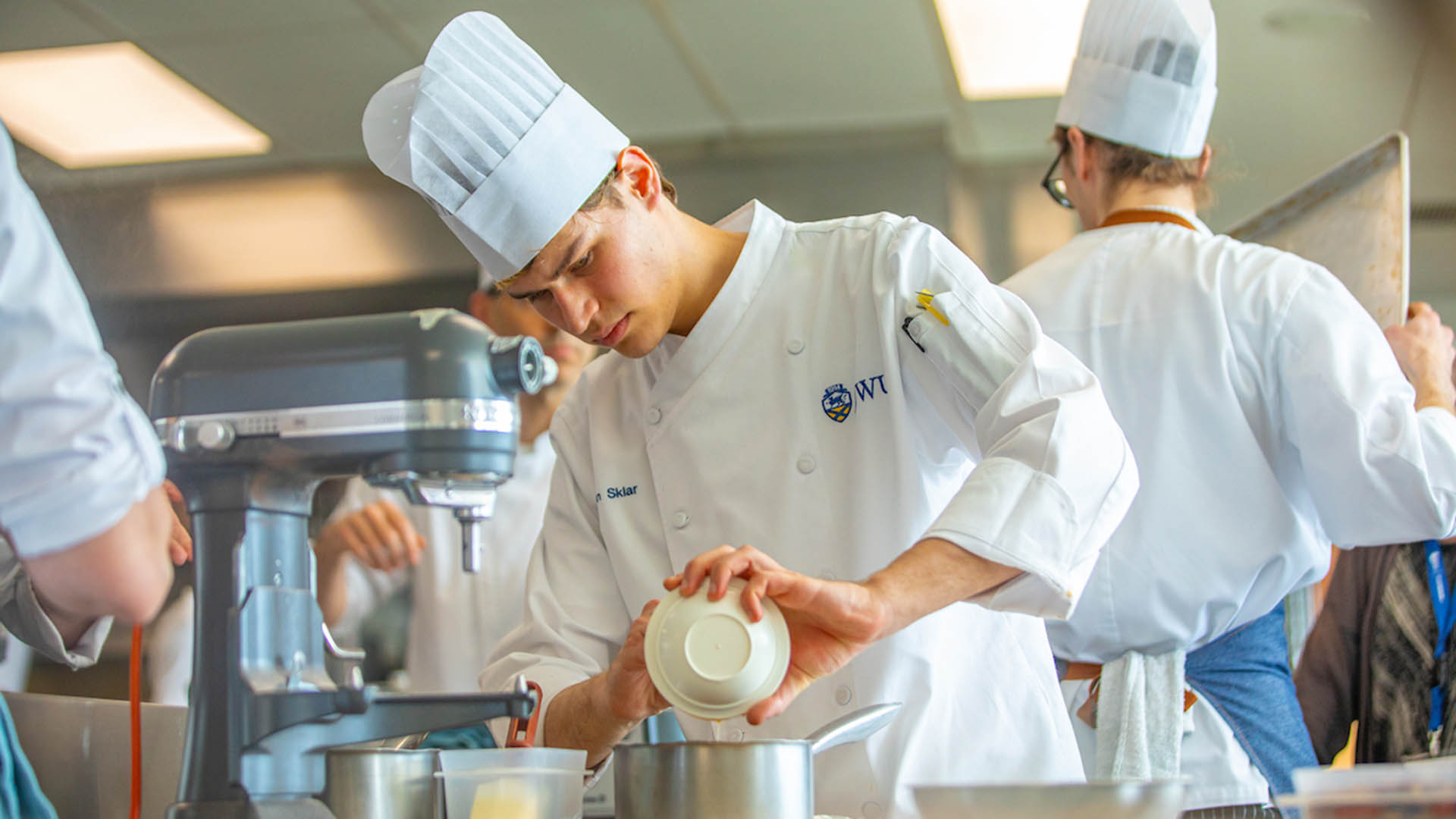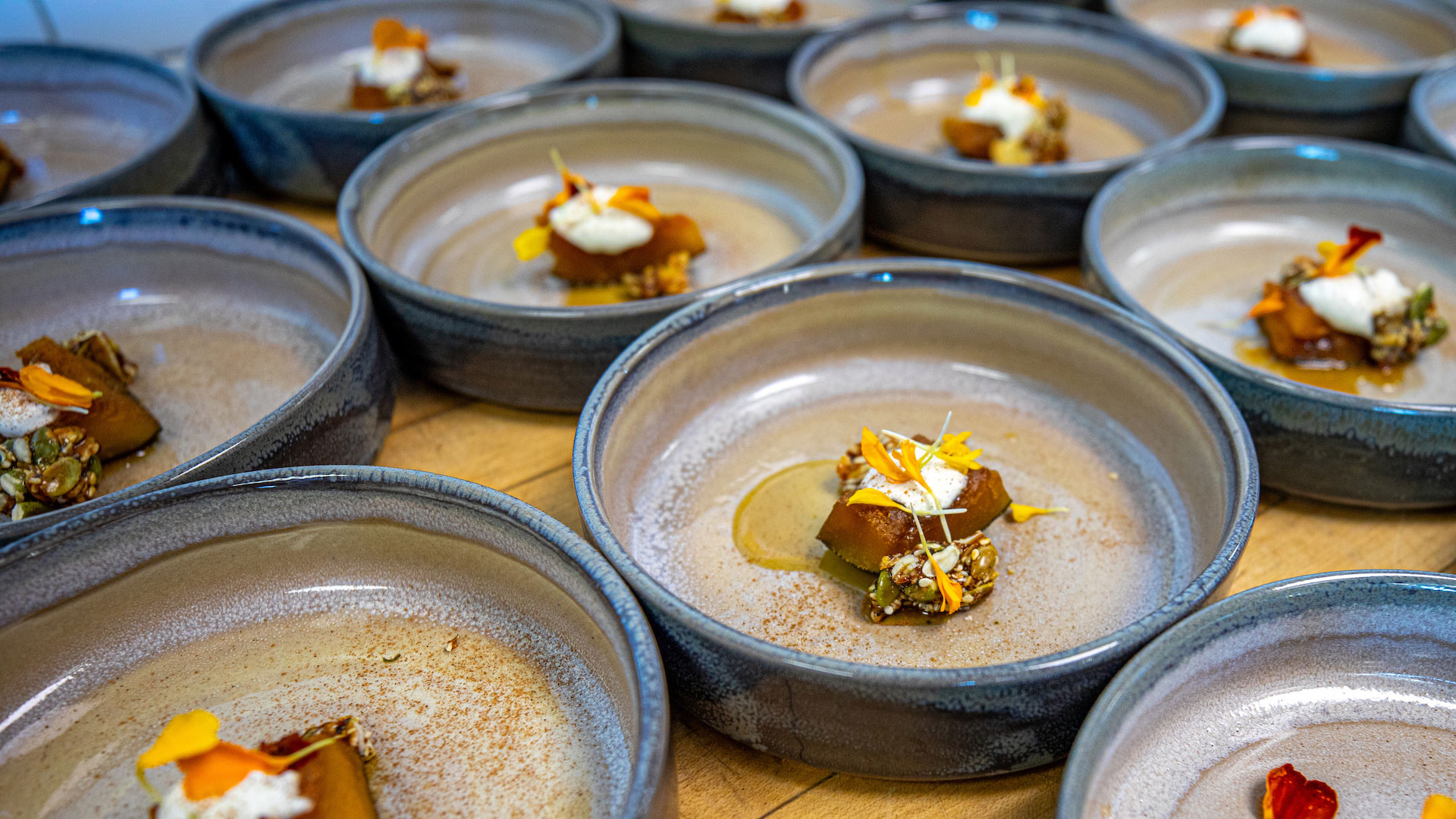JWU Focuses on Food as Medicine For National Nutrition Month
Every March is National Nutrition Month, but this year is special — 2023 marks 50 years of officially celebrating nutrition during March, introduced in 1973 by the Academy of Nutrition and Dietetics.
“Every year there’s a different theme, and this year it’s ‘Fuel for the Future,’” noted Associate Professor Kara Cucinotta '06, D.C.N., M.S., R.D.N., director of JWU Providence’s Dietetics & Applied Nutrition program. “The main focus is on eating sustainably within your budget and maintaining your health.”
“Our students really get firsthand knowledge about how to utilize food in a way that’s appealing but also nutritious and healthful.”
Cucinotta, a registered dietician, says the topic ties directly into JWU’s unique programming. “Our students really get firsthand knowledge about how to utilize food in a way that’s appealing but also nutritious and healthful,” Cucinotta said. “They really understand how to cross-utilize ingredients, meaning how to use something in multiple components throughout the week, which is a great tip for consumers to keep your food costs down.”
Collaborative Opportunities to Maximize Learning
Students dive into nutrition from all directions. Dietetics students work with Occupational Therapy students and Physician Assistant (PA) students for collaborative learning opportunities in a Food is Medicine course, taught by adjunct faculty member Mallory Sullivan.
“There aren’t many PA or health programs that incorporate this into their curriculum like we are able to do at JWU,” Sullivan said. “Our goal is to teach our PAs how they can better instruct their patients to be more healthful, making simple changes to diet to improve overall health.”
How ‘Food as Medicine’ Informs JWU Programming
One may call it “the JWU advantage”: the university’s food and culinary arts legacy is woven throughout the PA and Dietetics & Applied Nutrition degrees. The concept of food as medicine informs much of JWU’s programming.
This spring, the university welcomed world-renowned Chef Sean Sherman to campus to discuss his work reidentifying and revitalizing indigenous foods through an equity and sustainability lens.
“Food is medicine, and I think all indigenous peoples understand that for the most part,” Chef Sherman said. “The world provides plants, and if you start to identify them, some of them are food, some are medicinal, and there are a lot of plants that aren’t utilized by society in general today.”
This year’s Fuel for the Future theme aligns with JWU’s mission to shed light on sustainable food systems.
“Our students also have the ability to do a culinary sustainability minor, where they learn a lot about the local food systems and how to eat locally, shop locally, support local farms and other institutions,” said Cucinotta.
Each Monday during March, JWU’s Nutrition Society student club will host events, including a nutrition panel on March 20 featuring professionals sharing insight into their career paths. For all of us looking to boost our nutrition game during this month of national recognition, Cucinotta and Sullivan share three simple tips:
- The more you know how to cook, the better off you will be.
- Buy frozen and low-sodium canned items; they are just as good as fresh and may be more cost-effective.
- Don’t be afraid to cook new things and make small changes to improve nutritional value.
Listen to the podcast with Associate Professor Cucinotta and adjunct Mallory Sullivan:
RELATED READING
Chef Sean Sherman: ‘The Future Is Indigenous’
Keeping Your Immune System Healthy
APPLY TO JWU TRANSFER TO JWU PLAN YOUR VISIT
ALLISON ACQUISTO TEACHING NUTRITION ESSENTIALS AT JWU.




